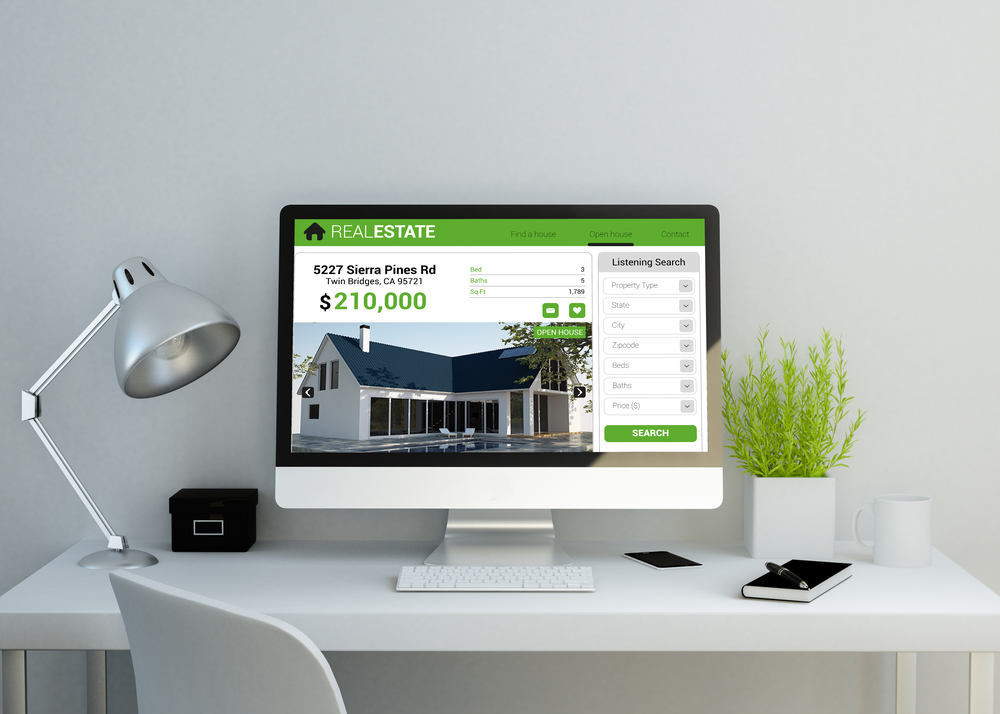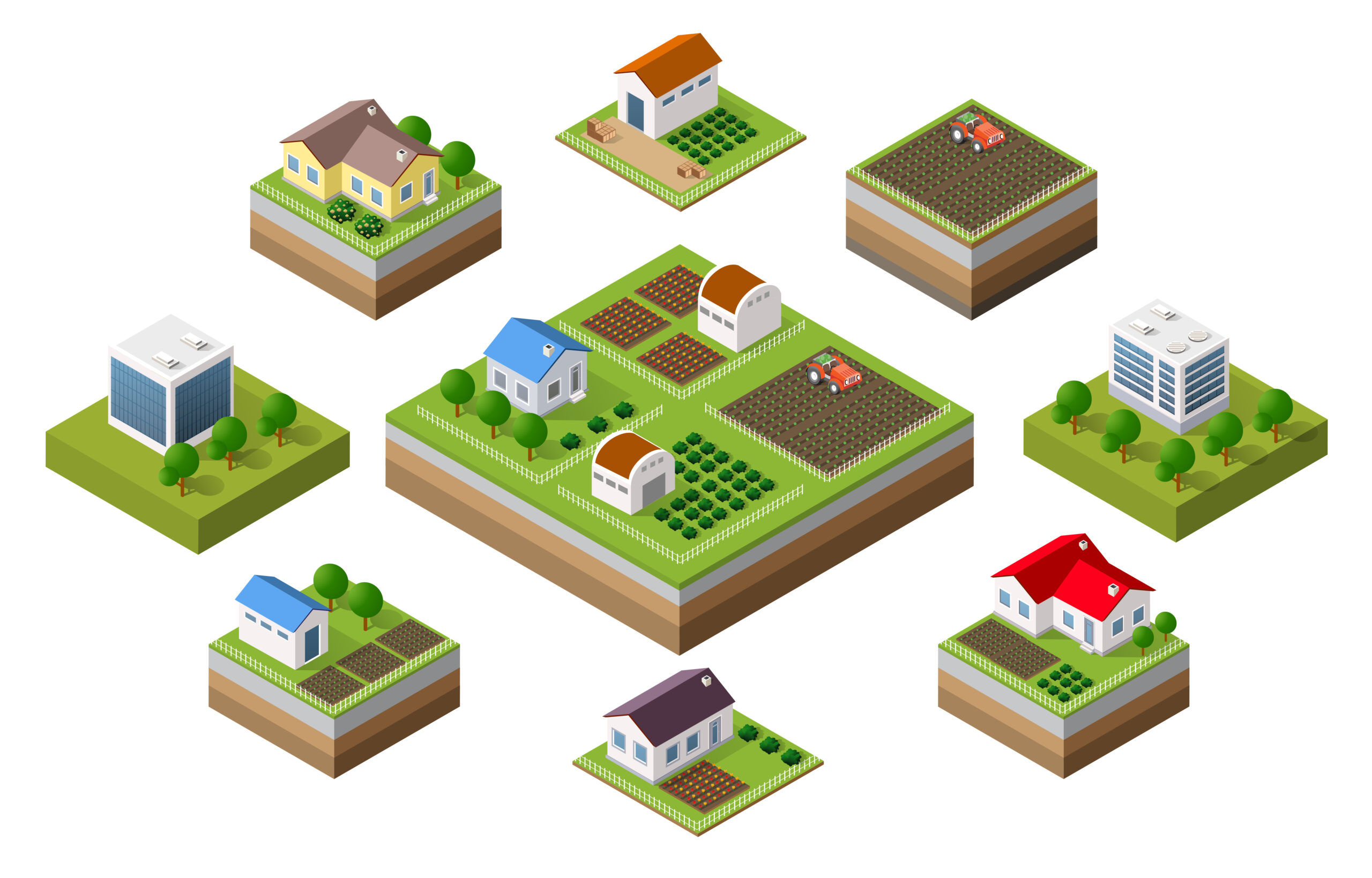In the fast-paced world of real estate, maintaining strong relationships with clients, managing properties effectively, and staying ahead of market trends are all crucial for success. This is where Customer Relationship Management (CRM) comes into play. CRM is not just a tool but a strategic approach that helps real estate professionals manage their business efficiently. This article aims to provide an in-depth understanding of the importance of CRM in the real estate industry.
Understanding CRM and its Role in Real Estate
Customer Relationship Management (CRM) in real estate is a strategy that involves the use of technology to organize, automate, and synchronize the business processes in real estate, primarily sales activities, but also marketing, customer service, and technical support. The goal of CRM in real estate is to find, attract, and win new clients, nurture and retain those the company already has, entice former clients back into the fold, and reduce the costs of marketing and client service.
In other words, Customer Relationship Management (CRM) in real estate is a comprehensive strategy that leverages technology to streamline and enhance various business processes. Let’s break down each aspect of this strategy:
Organize: CRM systems help real estate professionals organize vast amounts of data, from client contact information to property listings. For example, a real estate agent could use a CRM system to maintain a centralized database of potential and existing clients, complete with details such as their property preferences, budget, and communication history. This organized approach ensures that all necessary information is easily accessible, which can improve efficiency and decision-making.
Automate: Automation is a key feature of CRM systems. In the context of real estate, this could involve automating follow-up emails to potential clients, reminders for property viewings, or even marketing campaigns. For instance, if a new property that matches a client’s preferences becomes available, the CRM system could automatically send them an email or text message alert. This not only saves time but also ensures that opportunities for engagement are not missed.
Synchronize: CRM systems can synchronize various business processes, ensuring that all aspects of the real estate operation are aligned. For example, the sales, marketing, and customer service departments can all access and update the same client information in real time. This means that if a sales agent updates a client’s contact information, a customer service representative can access the updated information instantly. This synchronization can enhance collaboration and consistency across the business.
Sales Activities: CRM systems play a crucial role in managing sales activities in real estate. They can track interactions with potential clients, manage property listings, and even analyze sales data to provide insights. For example, a CRM system could help an agent identify which properties are most popular among their clients, enabling them to focus their sales efforts more effectively.
Marketing: CRM systems can also support marketing activities by providing tools for targeted advertising and client engagement. For instance, a real estate company could use its CRM system to send personalized marketing materials to clients based on their property preferences. The system could also track the effectiveness of marketing campaigns, providing valuable data that can inform future strategies.
Customer Service and Technical Support: CRM systems can enhance customer service by providing comprehensive client profiles that enable personalized service. If a client contacts the company with a query or issue, the representative can quickly access their profile to understand their history and preferences. This can lead to more effective and satisfying service. In terms of technical support, CRM systems can track issues and ensure they are resolved in a timely manner.
Client Acquisition and Retention: The ultimate goal of CRM in real estate is to attract and retain clients. By enhancing organization, automation, and synchronization, CRM systems can help real estate professionals provide excellent service, build strong relationships, and ultimately win and retain more clients. For example, by using a CRM system to provide timely and personalized service, a real estate agent could impress a potential client and win their business. Similarly, by maintaining regular contact and providing excellent service, they could retain existing clients and encourage repeat business.
Cost Reduction: By streamlining and automating various business processes, CRM systems can help reduce costs. For instance, automated marketing campaigns could reduce the need for manual effort and therefore lower labor costs. Similarly, organized and synchronized data can lead to more efficient operations and fewer mistakes, which can save both time and money.

Why CRM Benefits Real Estate Businesses
CRM systems can benefit real estate organizations of all sizes. Here are some ways how:
Improved Customer Service: In the real estate industry, customer service is paramount. A CRM system can significantly enhance the level of service provided by agents and brokers. For instance, when a client calls with a question about a property, the agent can quickly pull up all relevant information about that property, as well as the client’s transaction history, using the CRM system. This allows the agent to provide immediate, informed responses to the client’s inquiries.
For example, let’s say a client calls asking about the status of a property they’re interested in. With a CRM system, the agent can instantly access the property’s listing to check its status and provide an immediate answer. If the property is no longer available, the agent can use the client’s profile in the CRM system to recommend similar properties based on the client’s preferences. This level of personalized, efficient service can significantly enhance the client’s experience.
Insightful Customer Data: CRM systems can provide real estate professionals with valuable insights about their clients. By analyzing data such as property preferences, budget, and transaction history, agents and brokers can gain a deeper understanding of their clients’ needs and behaviors.
For instance, if an agent notices that a client consistently shows interest in properties with large backyards, the agent can prioritize showing the client similar properties in the future. Similarly, if the CRM system’s data analysis reveals that a significant number of clients are first-time homebuyers, a brokerage could develop educational resources or services specifically tailored to first-time buyers. These insights can help real estate professionals tailor their marketing and sales strategies to better meet their clients’ needs.
Automation of Tasks: Real estate professionals often juggle a multitude of tasks, from communicating with clients and coordinating property viewings to managing listings and generating reports. CRM systems can automate many of these tasks, freeing up time for agents and brokers to focus on more strategic activities.
For example, a CRM system can automatically send follow-up emails to clients after a property viewing, saving the agent the time and effort of doing so manually. The system could also automatically schedule property viewings based on the agent’s and client’s availability, eliminating the need for back-and-forth coordination.
Furthermore, CRM systems can generate reports on various aspects of the business, such as sales performance or client engagement, at the click of a button. This automation can significantly increase efficiency and productivity in a real estate business.
CRM in Sales Activities
In the realm of sales, a CRM system can be a game-changer. It allows real estate professionals to keep track of all their leads and clients in one place, making it easier to follow up on potential deals and keep the sales pipeline flowing. For example, a real estate agent could use a CRM system to set reminders for follow-up calls or emails, schedule property viewings, and track the progress of deals in real-time.
| Sales Activity | How CRM Helps |
|---|---|
| Lead Management | Track potential clients, their preferences, and their interaction history |
| Follow-ups | Set reminders for follow-up calls or emails |
| Property Viewings | Schedule and manage property viewings |
| Deal Tracking | Monitor the progress of deals in real-time |
CRM in Marketing
CRM systems also play a crucial role in real estate marketing. They can help real estate professionals understand their clients better, tailor their marketing efforts to match their clients’ preferences, and measure the effectiveness of their marketing campaigns. For instance, a real estate agency could use a CRM system to segment their clients based on their property preferences and then send personalized email campaigns to each segment.
| Marketing Activity | How CRM Helps |
|---|---|
| Client Segmentation | Segment clients based on their property preferences |
| Personalized Marketing | Send personalized email campaigns to each client segment |
| Campaign Tracking | Measure the effectiveness of marketing campaigns |
CRM in Customer Service
In terms of customer service, a CRM system can help real estate professionals provide better and faster service to their clients. By having all client information and interaction history at their fingertips, they can quickly address their clients’ concerns and provide personalized service. For example, if a client calls with a question about a property they viewed, a real estate agent could quickly pull up the property details and the client’s viewing history using their CRM system.
| Customer Service Activity | How CRM Helps |
|---|---|
| Client Information | Access all client information and interaction history in one place |
| Quick Service | Quickly address client concerns and provide personalized service |
| Client History | Pull up property details and client’s viewing history |
CRM in Technical Support
Finally, CRM systems can also enhance the technical support provided by real estate companies. They can help track support requests, manage support tickets, and provide quick and efficient support to clients. For example, if a client reports an issue with the online property listing, the support team could use the CRM system to track the issue, assign it to the right team member, and ensure it gets resolved quickly.
| Technical Support Activity | How CRM Helps |
|---|---|
| Support Requests | Track support requests and manage support tickets |
| Quick Support | Provide quick and efficient support to clients |
| Issue Tracking | Track issues, assign them to the right team member, and ensure they get resolved quickly |
CRM in real estate is not just about managing client relationships. It’s a comprehensive strategy that touches upon every aspect of the business, from sales and marketing to customer service and technical support. By leveraging the power of CRM, real estate professionals can provide better service to their clients, make their operations more efficient, and ultimately, drive their business growth.

Real Estate CRM Stats
Here are some key statistics and insights about CRM usage, particularly in the context of real estate:
Rapid Growth of CRM: CRM software is now the biggest software market in the world, with revenues expected to reach over $80 billion by 2025. This growth is driven by the increasing need for businesses to have real-time access to customer data, with mobile and cloud solutions leading the way.
Mobile CRM: Businesses using mobile CRM solutions are seeing higher adoption rates. Statistics from Forester have shown that 50% of teams improved their productivity by using a mobile CRM. A Nucleus Research report finds that for companies using a mobile CRM, 65% are achieving their sales quotas. While only 22% of reps using non-mobile CRM have reached the same targets.
Cloud-Based CRM Solutions: The use of cloud-based CRM solutions has increased from just 12% in 2008 to 87% today. This is due to the increasing need to access CRM software from multiple devices and locations.
CRM and IT Spending: Nearly 60% of organizations increased IT spending in 2020, and the trend continues in 2023. CRM software leads this technology investment, with 44% of businesses planning to increase IT budgets in 2023, up from 38% in 2022.
Personalized Marketing: The largest share of the digital marketers’ wallet in 2023 goes to email marketing. It’s estimated that the U.S. will spend over 350 million dollars on email advertising in 2023, which makes a lot of sense given email’s consistently highly-rated ROI of a $51 return on every $1 spent.
These statistics highlight the increasing importance and value of CRM systems in today’s business landscape. For real estate businesses, investing in a robust CRM system can help improve customer service, streamline operations, and drive sales growth.
Components of Real Estate CRM
CRM software in real estate consolidates customer information and documents it into a single CRM database so real estate professionals can more easily access and manage it. Over time, many additional functions have been added to CRM systems to make them more useful. Some of these functions include:
- Property Management: CRM systems in real estate can manage property listings, track their status, and match them with potential buyers or renters. This feature allows real estate professionals to keep all property-related information in one place, making it easier to manage and update listings. For example, when a new property is listed, the CRM system can automatically match it with potential buyers or renters based on their preferences and notify them about the listing. This not only saves time but also ensures that opportunities are not missed.
- Marketing Automation: CRM tools with marketing automation capabilities can automate repetitive tasks to enhance marketing efforts. For instance, a CRM system could automatically send out emails to potential clients about new listings that match their preferences. It could also automatically post property listings on various online platforms, saving real estate professionals the time and effort of doing so manually. This automation can significantly enhance the efficiency and effectiveness of marketing efforts.
- Contact Center Automation: Contact center automation in a CRM system can streamline customer service processes. For example, the system could include prerecorded audio that provides answers to common customer inquiries, reducing the workload of customer service representatives. It could also automatically route customer calls to the appropriate agent based on the nature of the inquiry, enhancing efficiency and customer satisfaction
- Geolocation Technology: Some CRM systems include geolocation technology, which can create geographic marketing campaigns based on customers’ physical locations. For example, if a potential buyer is located in a specific neighborhood, the CRM system could automatically send them information about new listings in that area. This technology can also integrate with popular location-based GPS apps, providing real estate professionals with valuable insights about property locations.
- Workflow Automation: Workflow automation in a CRM system can streamline various business processes, enabling real estate professionals to focus on more strategic tasks. For example, the system could automatically schedule property viewings based on the availability of the agent and the client, eliminating the need for manual coordination. It could also automatically generate reports on various aspects of the business, such as sales performance or client engagement, saving time and effort.
- Lead Management: Lead management is a crucial feature of CRM systems in real estate. The system can track sales leads, enabling sales teams to input, track, and analyze data for leads in one place. For example, if a potential client expresses interest in a property, the CRM system can track this lead, allowing the sales team to follow up effectively. This can significantly enhance the efficiency and effectiveness of the sales process.
- Human Resource Management (HRM): CRM systems can also support HRM by tracking employee information, such as contact information, performance reviews, and benefits. This feature allows the HR department to manage the internal workforce more effectively. For example, the HR department could use the CRM system to track the performance of individual agents, identify areas for improvement, and provide targeted training and support.
- Analytics: Analytics in CRM can provide valuable insights that can enhance customer satisfaction and drive business growth. For example, by analyzing user data, a CRM system could identify trends in client preferences, allowing real estate professionals to tailor their services accordingly. The system could also analyze the effectiveness of marketing campaigns, providing valuable data that can inform future strategies.
- Artificial Intelligence (AI): AI technologies, such as Salesforce Einstein, have been built into CRM platforms to automate repetitive tasks, identify customer-buying patterns to predict future customer behaviors, and more. For example, an AI-powered CRM system could analyze client data to predict which properties a client is likely to be interested in, allowing real estate professionals to provide personalized recommendations.
- Project Management: Some CRM systems include project management features, which can help real estate professionalskeep track of various aspects of their projects. For instance, if a real estate agency is managing the sale of a new development, the CRM system could track details such as the project’s objectives, strategic alignment, processes, risk management, and progress. This can help ensure that the project stays on track and that any potential issues are identified and addressed promptly.
- Integration with Other Software: Many CRM systems can integrate with other software, such as email, calendar, and accounting software. This ensures a seamless flow of information across different systems. For example, when a property viewing is scheduled in the CRM system, it could automatically create an event in the agent’s calendar. Similarly, when a sale is made, the CRM system could automatically update the accounting software with the transaction details. This integration can enhance efficiency and ensure that all relevant systems are kept up to date.
Here is a table summarizing the components of a real estate CRM system:
Component Description Property Management Manages property listings, tracks their status, and matches them with potential buyers or renters. Marketing Automation Automates repetitive tasks to enhance marketing efforts. Contact Center Automation Streamlines customer service processes with features like prerecorded audio and automatic call routing. Geolocation Technology Creates geographic marketing campaigns based on customers’ physical locations. Workflow Automation Streamlines various business processes, such as scheduling property viewings and generating reports. Lead Management Tracks sales leads, enabling sales teams to input, track, and analyze data for leads in one place. Human Resource Management (HRM) Tracks employee information, such as contact information, performance reviews, and benefits. Analytics Analyzes user data to create better customer satisfaction rates and targeted marketing campaigns. Artificial Intelligence (AI) Automates repetitive tasks, identifies customer-buying patterns to predict future customer behaviors, and more. Project Management Helps users keep track of client project details such as objectives, strategic alignment, processes, risk management, and progress. Integration with Other Software Integrates with other software, such as email, calendar, and accounting software, to ensure a seamless flow of information across different systems.

Types of CRM Technology in Real Estate
Cloud-based CRM: Cloud-based CRM, also known as SaaS (Software as a Service) or on-demand CRM, stores data on an external, remote network that can be accessed anytime, anywhere there is an internet connection. This type of CRM is particularly useful for real estate agents who are often on the move, meeting clients, and showing properties.
For example, an agent could use a cloud-based CRM system to access client information, property listings, and other relevant data from their smartphone while out of the office. This could enable them to provide immediate, informed responses to client inquiries, even when they’re not at their desk.
On-premises CRM: On-premises CRM systems are installed and run on the company’s own servers, with the company responsible for administration, control, security, and maintenance. This type of CRM might be suitable for larger real estate firms with a dedicated IT team.
For instance, a large real estate brokerage could use an on-premises CRM system to maintain control over their data and customize the system to their specific needs. However, this type of system typically requires a larger upfront investment in terms of both money and time, as the company would need to purchase licenses upfront and handle any upgrades themselves.
Open Source CRM: Open source CRM systems make their source code available to the public, allowing companies to make alterations at no cost. Open Source CRM platforms such as OroCRM, Bitrix24, SuiteCRM, and SugarCRM offer alternatives to the proprietary platforms from Salesforce, Microsoft, and other vendors.
For example, a real estate company with a skilled IT team could use an open source CRM system to customize the software to their specific needs, such as integrating it with their existing systems or adding new features.
Here is a table summarizing the types of CRM technology in real estate:
| Type | Description | Example |
|---|---|---|
| Cloud-based CRM | Stores data on an external, remote network that can be accessed anytime, anywhere. | An agent accessing client information from their smartphone while out of the office. |
| On-premises CRM | Installed and run on the company’s own servers, with the company responsible for administration, control, security, and maintenance. | A large real estate brokerage maintaining control over their data and customizing the system to their specific needs. |
| Open Source CRM | Makes source code available to the public, allowing companies to make alterations at no cost. | A company with a skilled IT team customizing the software to their specific needs. |
CRM Examples in Practice in Real Estate
Contact Center: In a real estate context, CRM systems can be used to manage and enhance contact center operations. For example, when a client calls with a question about a property, the contact center agent can quickly access all relevant information about that property and the client’s transaction history using the CRM system. This can enable the agent to provide immediate, informed responses to the client’s inquiries.
Social CRM: Social CRM involves businesses engaging with customers directly through social media platforms. For example, a real estate company could use their CRM system to track and manage their interactions with clients on platforms like Facebook, Twitter, and LinkedIn. This could include responding to client inquiries, sharing property listings, or addressing client grievances.
Mobile CRM: Mobile CRM applications are designed for use on smartphones and tablets. For real estate agents and brokers, this can enable them to access customer information and perform tasks when they’re not physically in their offices. For example, an agent could use a mobile CRM app to update a client’s contact information or schedule a property viewing while on the go.
Business-to-business (B2B) practices: In a B2B context, a CRM system can help monitor sales as they move through the sales funnel. For example, if a real estate company is working with a property developer or a large corporate client, they could use their CRM system to track the progress of the deal, from initial contact to final sale. This can help ensure that any potential issues are identified and addressed promptly.
Here is a table summarizing the practical applications of CRM in real estate:
| Application | Description | Example |
|---|---|---|
| Contact Center | CRM systems can be used to manage and enhance contact center operations. | A contact center agent accessing client and property information to provide immediate, informed responses to client inquiries. |
| Social CRM | Businesses engage with customers directly through social media platforms. | A real estate company tracking and managing their interactions with clients on social media platforms. |
| Mobile CRM | CRM applications designed for use on smartphones and tablets. | An agent using a mobile CRM app to update client information or schedule a property viewing while on the go. |
| B2B Practices | A CRM system can help monitor sales as they move through the sales funnel in a B2B context. | A real estate company tracking the progress of a deal with a property developer or a large corporate client. |

Choosing the Right CRM for Real Estate
Choosing the right CRM system for your real estate business is a critical decision that can significantly impact your operations and growth. Here are some factors to consider:
Ease of Use
The user-friendliness of a CRM system is a critical factor to consider when choosing a platform for your real estate business. Real estate professionals often juggle multiple tasks and responsibilities, from managing property listings and coordinating viewings to negotiating deals and maintaining relationships with clients. A CRM system that is difficult to navigate or understand can add unnecessary complexity to these tasks, potentially leading to inefficiencies and errors.
Here are some specific aspects to consider:
User Interface (UI): The UI of a CRM system plays a significant role in its ease of use. It should be clean, intuitive, and well-organized, making it easy for users to find the information or features they need. For instance, key features such as property listings, client contacts, and task management should be easily accessible from the main dashboard.
Learning Curve: Ideally, a CRM system should be easy to learn and use, even for individuals who are not particularly tech-savvy. If an agent needs to spend hours watching tutorials or reading through manuals to understand how to use the system, this can detract from the time they have available to focus on their core responsibilities. Look for a CRM system that offers a straightforward setup process and clear, easy-to-understand instructions.
Efficiency: A user-friendly CRM system can enhance efficiency by streamlining tasks and processes. For example, it could automate routine tasks such as sending follow-up emails to clients or updating property listings, saving agents time and effort. It could also provide quick and easy access to key information, such as a client’s contact details or transaction history, enabling agents to provide prompt and informed responses to client inquiries.
Integration: The CRM system should integrate seamlessly with other tools and platforms that your business uses, such as email clients, calendar apps, or property listing sites. This can help ensure a smooth workflow and prevent issues such as data duplication or inconsistency.
Ease of use of a CRM system can have a significant impact on the productivity and efficiency of your real estate business. By choosing a user-friendly system, you can help ensure that your team can make the most of the CRM’s features and capabilities, ultimately enhancing your business’s performance and growth.
Customizability
Customizability in a CRM system is another crucial factor to consider for your real estate business. Given that every real estate business has its unique processes, client base, and specific needs, a one-size-fits-all CRM solution may not be the most effective choice. A customizable CRM system allows you to tailor the platform to fit your specific business requirements and workflows, enhancing its effectiveness and efficiency.
Here are some specific aspects to consider:
Custom Fields and Modules: A customizable CRM system allows you to create custom fields and modules that align with your business processes. For instance, if your real estate business specializes in commercial properties, you might need fields for specific details like zoning information, commercial lease rates, or square footage. Similarly, if you operate in a niche market, such as luxury homes or historic properties, you might need custom modules to manage unique aspects related to these niches.
Workflow Automation: Customizable CRM systems often include tools for automating workflows, which can save time and reduce the risk of errors. For example, you could set up automated processes for following up with leads, scheduling property viewings, or sending out property information to potential buyers. These automated workflows can be tailored to match your business’s specific sales process and client communication strategies.
Integration Capabilities: A customizable CRM system should be able to integrate seamlessly with other software and tools that your business uses. This could include email platforms, social media networks, property listing websites, and more. These integrations can help streamline your workflows, ensure consistent data across different platforms, and enhance the overall efficiency of your operations.
Reporting and Analytics: Customizable CRM systems often include robust reporting and analytics tools. These tools can be customized to generate reports and insights that are most relevant to your business. For example, you might want to track metrics like lead conversion rates, average property selling time, or client satisfaction levels. Custom reports can provide valuable insights into your business performance and help inform strategic decisions.
A customizable CRM system can significantly enhance the effectiveness and efficiency of your real estate business. By tailoring the CRM to fit your specific needs and workflows, you can ensure that the system supports your business processes, provides relevant insights, and ultimately helps drive your business growth.
Scalability
Scalability is a crucial factor to consider when choosing a CRM system for your real estate business. As your business grows, your CRM system should be able to grow with it, accommodating more users, properties, and data without compromising performance or efficiency.
Here are some specific aspects to consider:
User Capacity: As your team grows, you’ll need a CRM system that can accommodate an increasing number of users. This means not only being able to add new users easily but also ensuring that the system performance remains stable and efficient even with a large number of users. For instance, if your real estate agency expands from a small team of five agents to a large team of fifty, your CRM system should be able to handle this growth without slowing down or becoming difficult to manage.
Data Management: A scalable CRM system should be able to handle increasing amounts of data. As your portfolio of properties grows and you interact with more clients, the amount of data you need to manage will increase. This includes property details, client contact information, transaction histories, and more. A scalable CRM system will be able to store and manage this growing volume of data efficiently, ensuring that you can access and use the data when you need it.
Feature Expansion: As your business grows and evolves, you may find that you need additional features or capabilities from your CRM system. A scalable CRM system will allow you to add or upgrade features as needed. For example, you might start with a basic CRM system that focuses on contact management and property listings. But as your business grows, you might need more advanced features, such as marketing automation, advanced analytics, or integration with other software.
Cost Efficiency: Scalability is also about cost efficiency. As your business grows, your CRM costs will likely increase. However, a scalable CRM system should provide cost efficiencies that help offset these increases. For example, the per-user cost might decrease as you add more users, or you might get additional features or storage capacity at no extra cost as your data volume increases.
Scalability is a critical factor to consider when choosing a CRM system for your real estate business. A scalable CRM system can support your business growth, adapt to your evolving needs, and provide cost efficiencies, making it a valuable investment for your business.
Cost
The cost of a CRM system is an essential consideration for any real estate business. While it’s important to invest in a CRM system that meets your needs, it’s equally important to ensure that it provides value for money and fits within your budget. Here are some aspects to consider:
Total Cost of Ownership (TCO): When evaluating the cost of a CRM system, it’s essential to consider the total cost of ownership. This includes not only the upfront costs of purchasing or subscribing to the system but also ongoing costs such as maintenance, upgrades, and user training. Additionally, consider any potential hidden costs, such as customization fees, integration costs, or add-on modules that may be required in the future.
Subscription vs. One-time Payment: CRM systems are often available through subscription-based models or one-time payment options. Subscription models typically involve monthly or annual fees, allowing you to spread out the costs over time. On the other hand, one-time payment options require an upfront investment but may have lower long-term costs. Consider your budget and cash flow preferences when choosing between these payment models.
Value for Money: While cost is important, it should not be the sole determining factor. Assess the value that the CRM system provides in relation to its cost. Consider the features, functionality, ease of use, scalability, and customer support offered by the CRM provider. A system that provides significant benefits and helps streamline your operations may be worth a higher investment.
Support
Reliable customer support is crucial when selecting a CRM system for your real estate business. It ensures that you can address any issues promptly, receive assistance when needed, and maximize the system’s effectiveness. Here are some considerations for support:
Availability: Check the availability of customer support, including their working hours and response times. Ideally, the CRM provider should offer support during your business hours and provide timely responses to inquiries or issues.
Support Channels: Determine the support channels provided by the CRM provider. This may include options such as phone support, email support, live chat, or a dedicated support portal. Consider your preferred method of communication and ensure that the CRM provider offers support through those channels.
Expertise and Knowledge Base: Assess the expertise and knowledge base of the CRM provider’s support team. They should have a good understanding of the CRM system and be able to assist with technical issues, customization, and general inquiries. Additionally, check if the CRM provider offers a comprehensive knowledge base, documentation, or training resources that can help you troubleshoot common issues or learn how to use the system effectively.
User Community: Consider whether the CRM provider has an active user community or forum where users can ask questions, share insights, and learn from one another. Engaging with a community of fellow users can provide additional support and insights beyond what the CRM provider offers directly.
Considering the cost and support aspects of a CRM system is crucial for your real estate business. Evaluate the total cost of ownership, assess the value provided by the system, and ensure that the CRM provider offers reliable customer support. By making an informed decision in these areas, you can select a CRM system that aligns with your budget, meets your needs, and provides ongoing support for your business.
Integration with Other Software
Integration capabilities are an important consideration when choosing a CRM system for your real estate business. The ability to seamlessly integrate with other software applications that your business relies on can streamline processes, eliminate duplicate data entry, and provide a comprehensive view of your operations. Here are some key points to consider:
Email Integration: Integration with email platforms, such as Outlook or Gmail, allows you to synchronize your emails with the CRM system. This enables you to track and record email communications directly within the CRM, ensuring a centralized and complete view of client interactions.
Calendar Integration: Integration with calendar applications, such as Google Calendar or Microsoft Outlook Calendar, enables you to sync appointments, property viewings, and follow-up tasks between the CRM system and your calendar. This ensures that you stay organized and have all relevant information at your fingertips.
Property Listing Integration: Integration with property listing platforms, such as MLS (Multiple Listing Service) or real estate websites, allows you to import property details directly into the CRM system. This saves time and effort by eliminating the need for manual data entry and ensures that your property information remains up to date across platforms.
Accounting Integration: Integration with accounting software, such as QuickBooks or Xero, enables seamless transfer of financial data between the CRM system and your accounting platform. This streamlines processes such as invoicing, payment tracking, and financial reporting.
Document Management Integration: Integration with document management systems, such as Dropbox or Google Drive, allows you to store and access property documents, contracts, or other important files directly within the CRM system. This ensures that all relevant documents are easily accessible and eliminates the need for separate storage systems.
Marketing Automation Integration: Integration with marketing automation tools, such as Mailchimp or HubSpot, enables you to automate marketing campaigns, track leads, and analyze campaign performance directly from your CRM system. This facilitates targeted marketing efforts and allows for a more comprehensive view of customer engagement.
By choosing a CRM system that offers seamless integration with other software applications, you can enhance efficiency, reduce manual tasks, and ensure data consistency across platforms.
Here is a table summarizing the integration capabilities of CRM systems in real estate:
| Integration | Description | Example |
|---|---|---|
| Email Integration | Synchronizes email communications with the CRM system. | Recording and tracking client email conversations directly within the CRM system. |
| Calendar Integration | Syncs appointments and tasks between the CRM system and your calendar. | Viewing and managing property viewings and follow-up tasks within your CRM-integrated calendar. |
| Property Listing Integration | Imports property details from listing platforms into the CRM system. | Automatically updating property information in the CRM system when changes are made on listing platforms. |
| Accounting Integration | Seamlessly transfers financial data between the CRM system and accounting software. | Generating invoices, tracking payments, and financial reporting directly from the CRM system. |
| Document Management Integration | Integrates with document management systems for easy storage and access to important files. | Storing property documents, contracts, or files within the CRM system using a document management integration. |
| Marketing Automation Integration | Automates marketing campaigns and tracks leads from within the CRM system. | Setting up targeted email campaigns and tracking campaign performance directly in the CRM system using marketing automation integration. |
In conclusion, the integration capabilities of a CRM system are crucial for real estate businesses. By selecting a CRM system that seamlessly integrates with other software applications, you can streamline processes, enhance efficiency, and maintain consistent and accurate data across platforms.
The Future of CRM in Real Estate
The future of CRM in real estate looks promising, with several emerging trends and technologies poised to revolutionize the way real estate professionals manage their relationships and operations.
Artificial Intelligence (AI) and Machine Learning (ML) are expected to play a significant role in the future of CRM. These technologies can analyze vast amounts of data and provide insights that can help real estate professionals make informed decisions. They can also automate tasks and personalize customer interactions, enhancing efficiency and customer satisfaction.
Another trend is the increasing use of mobile CRM, driven by the growing need for flexibility and real-time access to information. With mobile CRM, real estate professionals can manage their operations from anywhere, anytime.
In conclusion, CRM is an indispensable tool in the real estate industry. It not only enhances efficiency and productivity but also improves customer relationships, which are at the heart of the real estate business. As technology continues to evolve, CRM systems are expected to become even more sophisticated and powerful, further transforming the real estate industry.

CRM Challenges in Real Estate
Implementing a CRM system in the real estate industry comes with its own set of challenges. Without proper management and attention to data quality, a CRM system can fail to deliver the desired results and become a mere repository of customer information. Here are some key challenges faced by real estate businesses when it comes to CRM:
Disconnected Data Sets
In the real estate industry, customer data is often scattered across various systems and databases. For example, customer information might be stored in separate systems for property management, sales, and marketing. This disconnected data can make it challenging to gain a holistic view of the customer and provide personalized and efficient service.
To overcome this challenge, real estate businesses need to focus on integrating and centralizing their data sets. This involves connecting different systems and databases to create a unified CRM database that consolidates all customer information. By having a single dashboard or interface where all relevant data is accessible, real estate professionals can easily retrieve the information they need, leading to more informed decision-making and improved customer interactions.
Duplicate and Outdated Data
Duplicate customer records and outdated information can significantly impact the effectiveness of a CRM system. Duplicate records can lead to confusion and make it difficult to maintain accurate customer profiles. It can also result in inconsistencies in communication and create a poor customer experience.
To address this challenge, real estate businesses should invest time and effort in data cleaning. This involves identifying and merging duplicate records to ensure a single, accurate view of each customer. Regular data hygiene practices, such as updating contact information and verifying data accuracy, are essential to prevent outdated information from negatively impacting customer interactions. Additionally, implementing data validation processes during data entry can help maintain data quality and integrity.
Data Cleaning and Integration
Data cleaning and integration are vital steps in making the most of a CRM system. Before supplementing CRM data with external sources, such as property listings or demographic information, it’s important to ensure the existing customer data is accurate and complete. This involves reviewing and standardizing data fields, resolving inconsistencies, and verifying the accuracy of information.
Integration with external sources of data is also crucial to enrich the CRM system. For example, integrating property listings allows real estate professionals to have up-to-date information on available properties, prices, and features. By integrating relevant external data sources, real estate businesses can provide comprehensive and valuable insights to their agents, enabling them to make better-informed decisions and offer personalized services to clients.
User Adoption and Training
A CRM system’s success heavily relies on user adoption and proper training. Real estate professionals may resist using the system if they perceive it as cumbersome or time-consuming. To overcome this challenge, businesses should invest in comprehensive training programs that educate users on the benefits and functionalities of the CRM system. Training sessions can cover topics such as data entry, navigation, reporting, and workflow management. Ongoing support and assistance are crucial to address any questions or challenges that users may encounter during the adoption process.
Change Management
Implementing a CRM system involves changes in processes and workflows. Resistance to change, lack of communication, and inadequate change management strategies can hinder successful adoption. To overcome this challenge, real estate businesses should develop a clear change management plan that includes effective communication, stakeholder engagement, and addressing concerns or challenges. Involving key stakeholders from different departments and seeking their input can foster a sense of ownership and facilitate a smoother transition to the new CRM system.
By addressing these challenges through data integration, cleaning, user adoption, training, and change management, real estate businesses can optimize their CRM systems’ potential and deliver exceptional customer experiences.
To overcome these challenges, real estate businesses should prioritize data cleaning and integration efforts, invest in user training and support, and develop a comprehensive change management strategy. By addressing these challenges, businesses can maximize the value of their CRM system and provide enhanced customer experiences.
IOverall, Customer Relationship Management (CRM) plays a pivotal role in achieving real estate success. Through this overview, we have explored the key aspects of CRM and its impact on the industry. CRM systems streamline lead management, enabling agents to capture, organize, and prioritize leads effectively. The ability to maintain consistent and personalized communication with clients is enhanced through CRM, fostering strong customer relationships. Additionally, the centralized property database offered by CRM systems allows for easy access, updates, and efficient property matching.
The advantages of CRM extend beyond these core functionalities. By leveraging data analytics and reporting features, real estate professionals gain valuable insights into sales performance, conversion rates, and customer preferences. Armed with this knowledge, agents can make informed decisions and refine their strategies for continued success.
It is crucial for real estate professionals to recognize the immense potential of CRM in driving efficiency, productivity, and customer satisfaction. By adopting CRM systems, agents can optimize their operations, improve lead conversion rates, and establish a solid foundation for growth.
In the ever-evolving real estate landscape, embracing CRM is no longer an option but a necessity. Those who harness the power of CRM position themselves for a competitive edge and the opportunity to thrive in this dynamic industry.
So, take the leap and unlock the key role of CRM in your real estate success. Embrace the advantages it offers, propel your business forward, and build enduring customer relationships. Together, let’s pave the way to a prosperous future in the real estate realm with the transformative power of CRM.
















